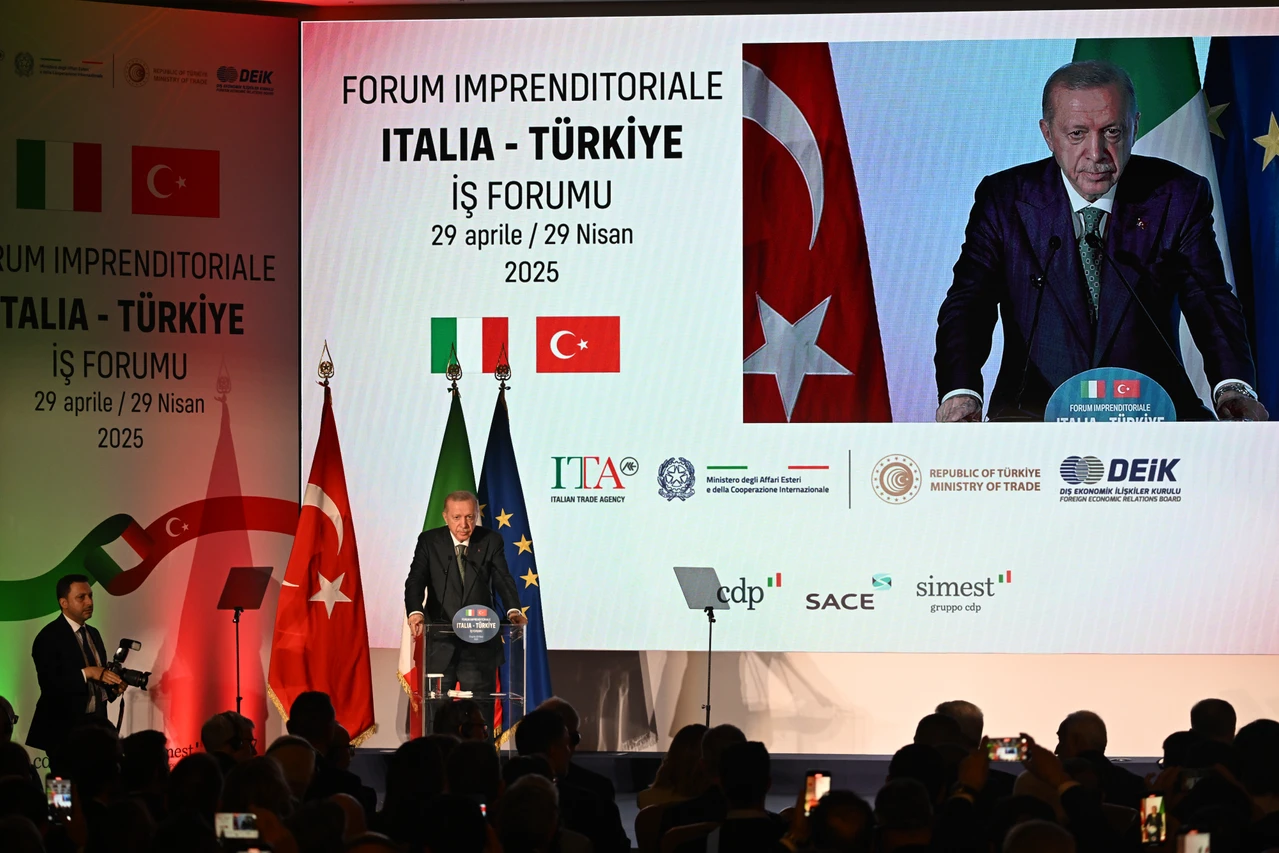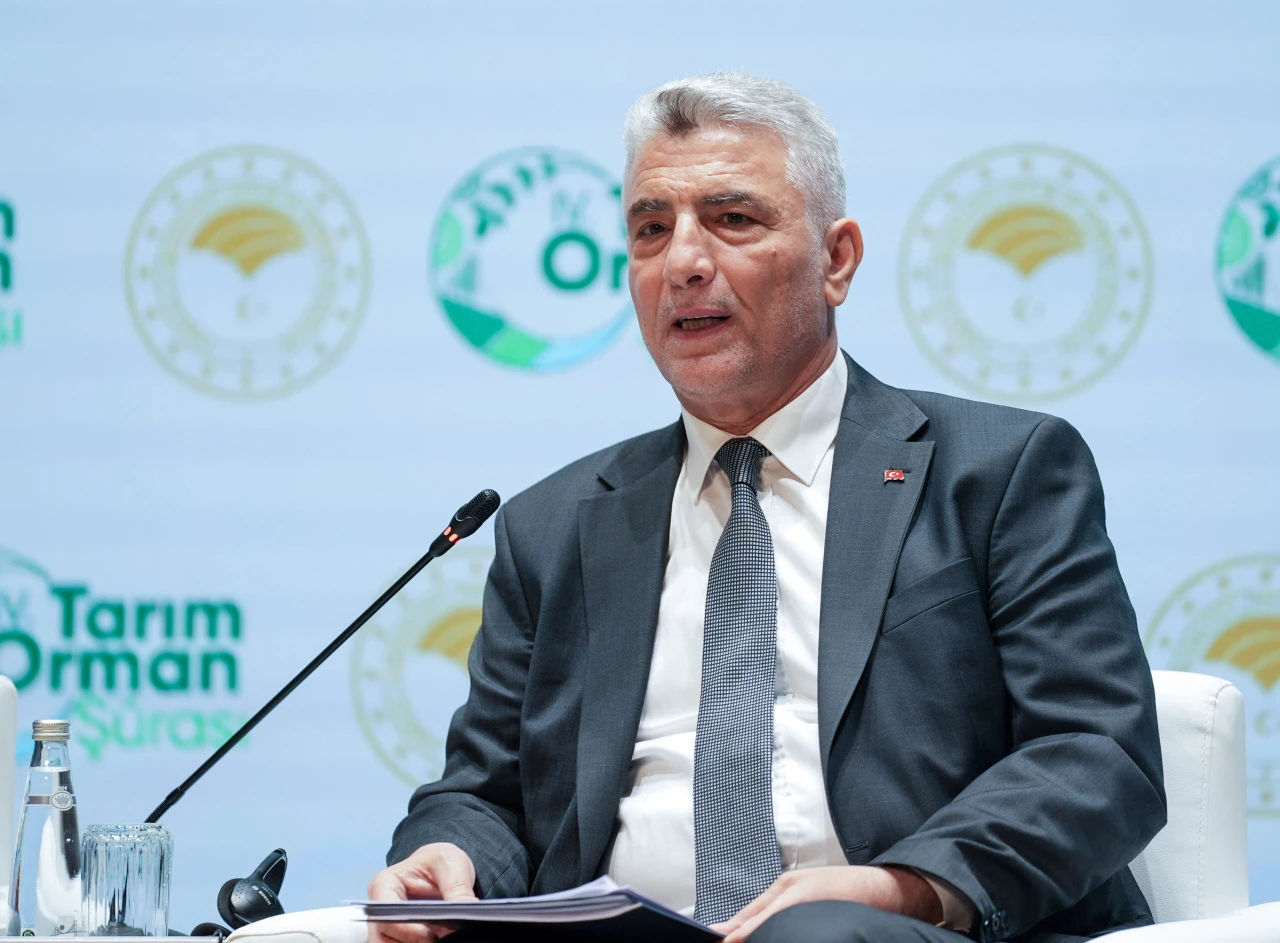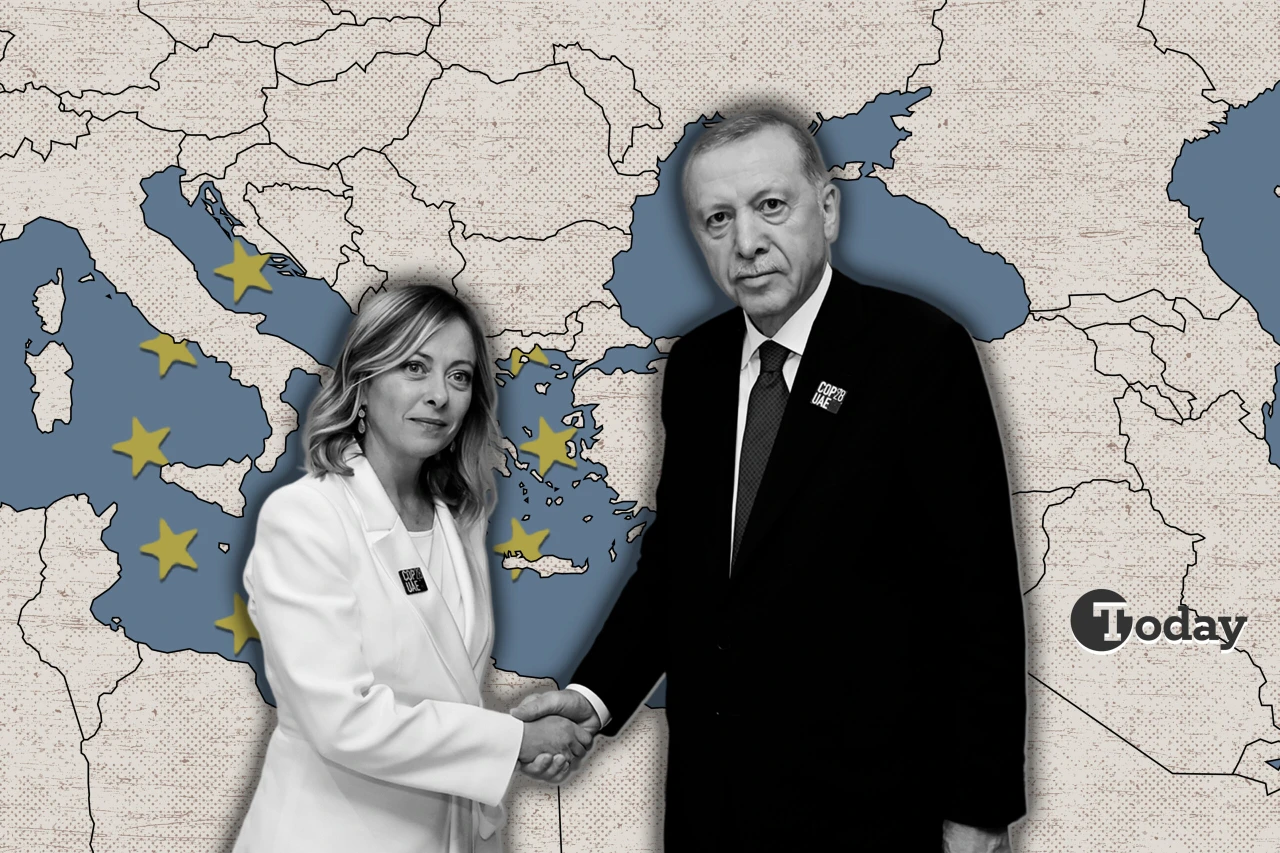Türkiye’s long-term strategic advantages reassure investors: Finance Minister
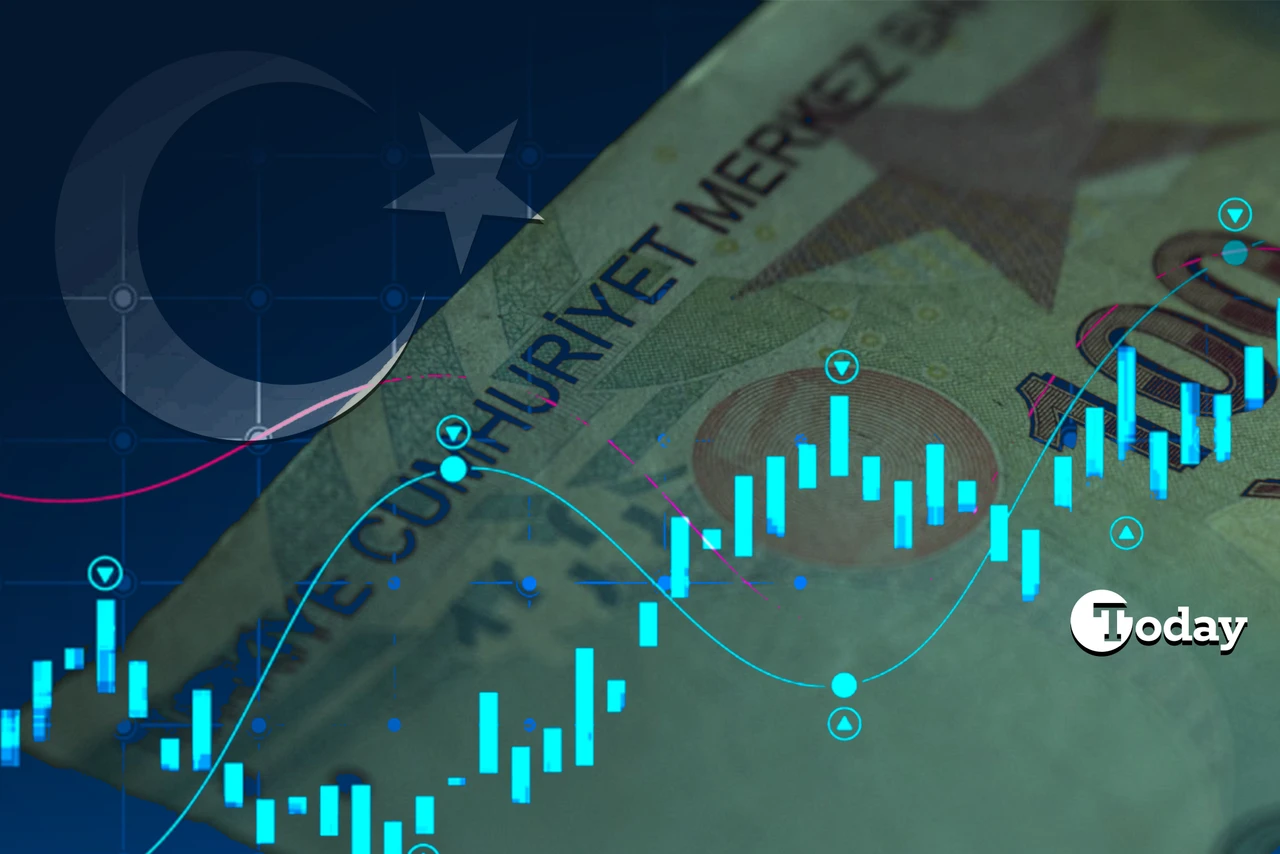 Photo illustration depicts a Turkish lira banknote overlaid with financial charts, symbolizing market trends amid shifting trade and fiscal policies, created on Apr. 4, 2025. (Collage by Türkiye Today)
Photo illustration depicts a Turkish lira banknote overlaid with financial charts, symbolizing market trends amid shifting trade and fiscal policies, created on Apr. 4, 2025. (Collage by Türkiye Today)
Turkish Treasury and Finance Minister Mehmet Simsek acknowledged that the country may have been slightly more affected by capital outflows than other nations due to domestic developments amid global uncertainties, adding that “once the dust settles, Türkiye’s significant advantages will become clear.”
Simsek’s remarks came in response to the recent market downturn in the Turkish economy, which followed a corruption probe targeting Istanbul Mayor Ekrem Imamoglu and triggered investor panic, resulting in a foreign net outflow exceeding $10 billion since March.
On the other hand, U.S. President Donald Trump’s reciprocal tariffs, unveiled on April 2, triggered the steepest global market sell-off in years, fueled by heightened fears of trade wars and recession risks.
In an interview with Turkish media, Simsek reaffirmed the government’s firm commitment to its ongoing economic program. He noted that although the Turkish lira had experienced limited depreciation and inflation expectations had slightly worsened, the central bank’s inflation target path remained intact.
“Our inflation forecast midpoint remains at 24%, and the Central Bank still believes this is achievable,” he stated, adding that monetary tightening has already begun to moderate domestic demand.
Simsek stated that recent fluctuations were largely because of external factors, with about 58% of the outflows driven by global developments. He said the trend had now stabilized and that citizens had shown growing confidence in the economic program by not participating in capital outflows.
“There is no resource problem in Türkiye today,” he added, pointing to improving investor sentiment and an anticipated rise in foreign direct investment.
Ongoing disinflation process of Türkiye
On growth, Simsek noted signs of a slowdown driven by tighter domestic financial conditions, weakening global momentum, and deteriorating expectations.
He emphasized the government’s commitment to reallocating budget resources toward productivity-enhancing investments, mentioning that the Industry and Technology Ministry is finalizing new industrial incentives.
Simsek also highlighted Türkiye’s relative advantage in global supply chains amid rising protectionism.
While the U.S. has imposed 10% additional tariffs on Türkiye, this rate remains lower than those applied to many Asian countries, he stated.
“Europe will need to diversify its supply chains, and Türkiye is already benefiting from a shift in investment flows,” he said, suggesting that both European and Asian manufacturers are increasingly considering Türkiye as a production hub.
Simsek stressed that Türkiye is now one of the most competitively positioned countries in services exports and could further benefit if the U.S. maintains high tariffs on Türkiye’s rivals.
However, he warned of potential risks if unsold Asian goods were redirected to Türkiye’s markets.
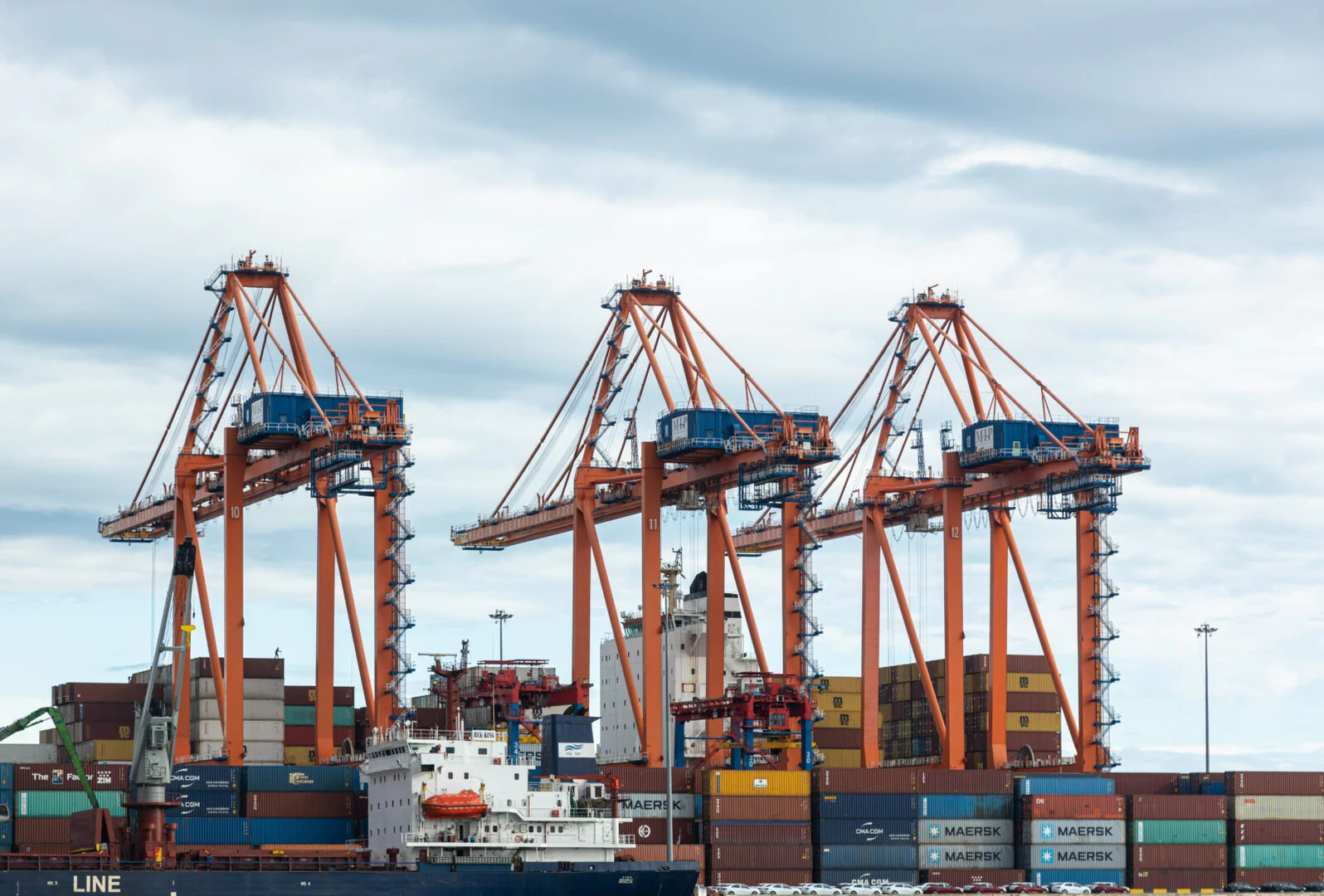
Trade and investment ties with US, EU
Discussing U.S.-Türkiye trade relations, Simsek pointed out that Türkiye had previously exported over $2.5 billion worth of steel, aluminum, and iron to the U.S., but tariffs had reduced this to $600 million.
“There is now a strong likelihood we will return to pre-2018 levels,” he said, attributing this to improved bilateral dialogue and the absence of a trade surplus against the U.S., which resulted in Türkiye receiving the lowest tariff rates under the new regime.
Regarding the European Union, Simsek noted that Türkiye had recently hosted the first High-Level Economic Dialogue in six years in Brussels.
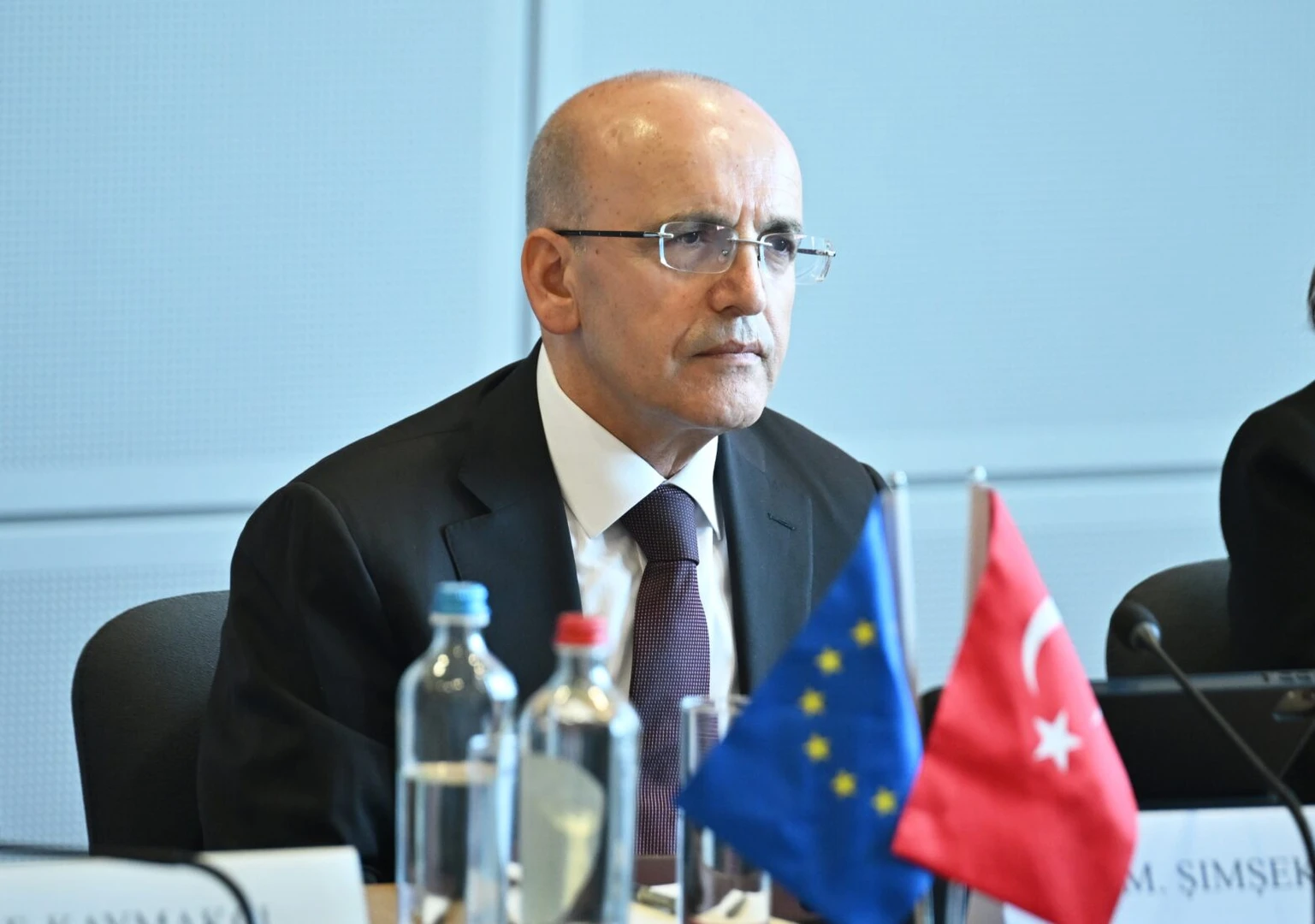
He stressed the importance of deepening economic integration with the EU, calling the modernization of the Customs Union mutually beneficial and reaffirming full membership as Türkiye’s strategic objective.
Simsek also commented on falling global commodity prices, especially oil, which he described as favorable for Türkiye’s inflation and current account balance. “Oil prices have eased to around $65–$70 per barrel, which is extremely beneficial for us,” he said.
Looking ahead, Simsek announced plans to attend international investor forums in London, Brussels, and Doha and the annual Islamic Development Bank meetings in May, where discussions will center around regional integration, economic outlook, and attracting new capital inflows.
